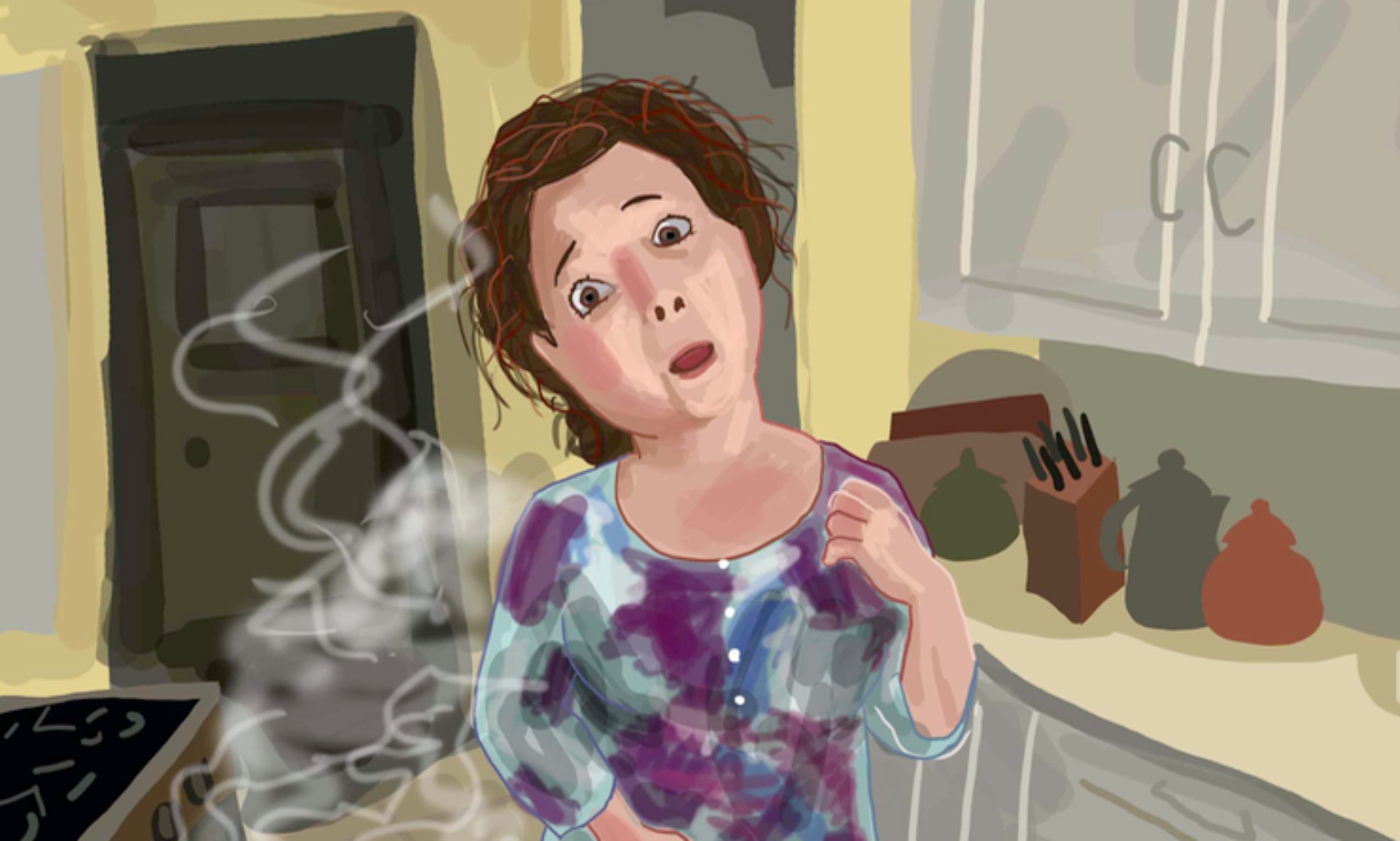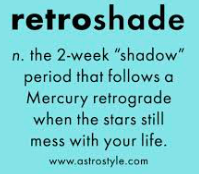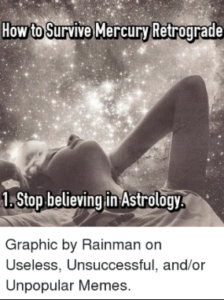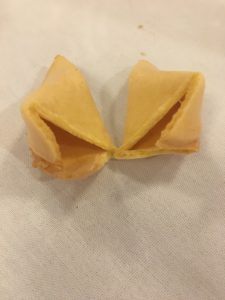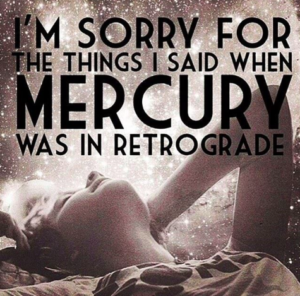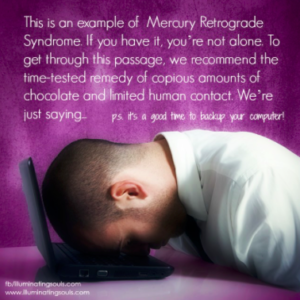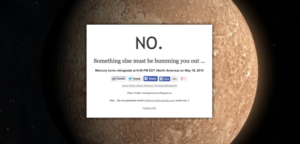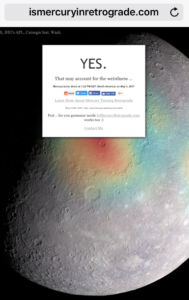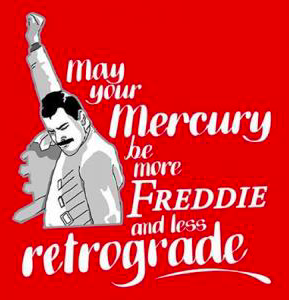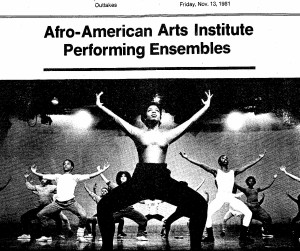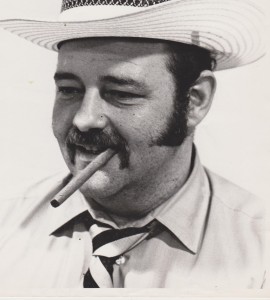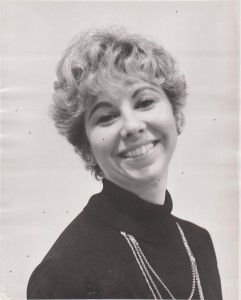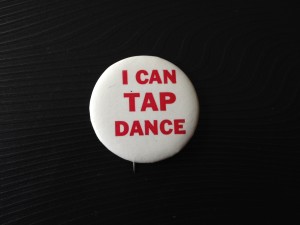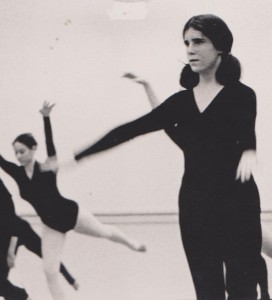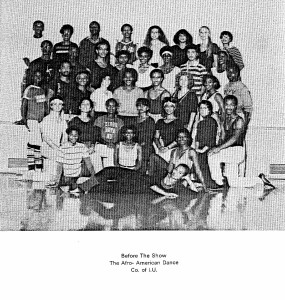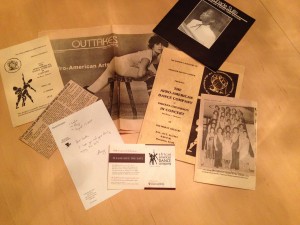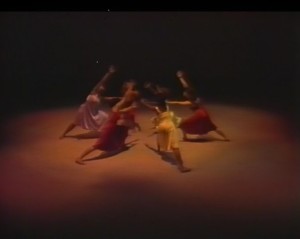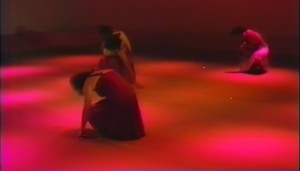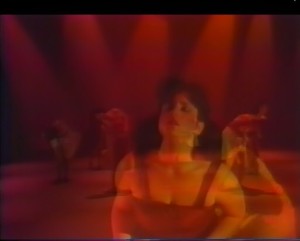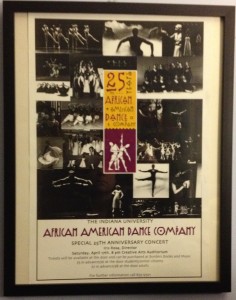I had never heard of Mercury retrograde until my friend Sharon Rosenzweig enlightened me. While sipping tea at her house one day a few years ago, I mentioned that everything in my life seemed to be going awry and askew and I couldn’t figure out why.
Sharon said, “Well, Mercury is in retrograde.”
I said, “Well, that’s nice, but what does that have to do with anything?”
Ever so patient Sharon explained that people tend to misunderstand each other, transportation can get messed up, and lots of other things can easily go wonky when Mercury is in that cycle. She also told me that the periods before and after retrograde can get messed up, too.
“That’s like my sister Beth,” I said. “She goes wonky before, during and after her cycle. In fact, she doesn’t have PMS; she has AMS!”
I’m sure I gnaw away at Sharon’s patience, but she never shows it.
According to The Old Farmer’s Almanac, “The planet Mercury rules communication, travel, contracts, and automobiles… So, when Mercury is retrograde, remain flexible, allow extra time for travel, and avoid signing contracts…”
Actually, Mercury retrograde is an illusion that happens several times each year. When Mercury is in retrograde it appears to move backwards. But, “Mercury is just moving slower than Earth, causing the illusion that it’s moving in retrograde,” according to “Mother Nature Network.”
While most astrologers and just plain regular folk believe that Mercury retrograde can mess things up in life, most scientists think the whole thing is just plain hooey.
In his blog “Bad Astronomy” Phil Plait wrote an entry titled “Astrology in retrograde” in the October 3rd, 2008 issue of “Discover” magazine. He wrote, “I was called by MSNBC reporter Helen Popkin yesterday because she was doing an article on astrology. And she stumped me with a simple question: “Have you heard,” she asked “about the idea that electronics tend to fail when Mercury is in retrograde?”
Uh. What?
I hadn’t heard of this little piece of nonsense, but according to Ms. Popkin, sure enough, some astrologers say that technology tends to fail more when Mercury is in retrograde… Since, astrologically, Mercury controls communication and technology, when it’s in retrograde things get screwed up. That’s why Hubble is malfunctioning, and why the LHC (I had to look this up: Large Hadron Collider) is having woes.
Yeeeeeeah. Oooooookay.
So for the next half hour we chatted technology, we chatted Mercury, we chatted astrology. You can guess how I feel about all this astrology stuff.”
He went on to say that Ms. Popkin had written “a fluffy humor piece, not really meant to sway people either way. I smiled a lot while reading it, even though astrologers make me want to stick my head in the microwave.”
Well, this is my fluffy humor piece! I am not of science or astrology, but I believe! So, go ahead and stick your head in the microwave, Mr. Plait.
I ask you, “How do you explain this?”
And, if scientific proof is needed, let’s go back in time two weeks to Thanksgiving weekend when winter storm “Bruce” caused, among other things, nearly 3,000 flight cancellations.
Was Mercury in retrograde then? As a matter of fact it was!
“Bruce” dumped so much snow it was as if the heavy-duty laxatives it had been taking all month finally kicked in.
Many people say that when Mercury is in retrograde we should slow down, as Mercury appears to, and take time to reflect upon ourselves without placing blame.
So, during this time of reflection, I’d like to apologize to Mr. Plait. After watching a video of Taylor Swift explaining the ways in which Mercury in retrograde destroys our lives, I, too, would like nothing more than to stick my head in the microwave.
In the November, 16, 2018 article on vlox.com called “Mercury retrograde, explained without astrology” there’s an embedded video of Swift who says that when Mercury is in retrograde, “You can’t blame yourself. You just have to blame Mercury ‘cause it’s just hella in retrograde.” Oy.
If I really wanted to, I could find out when Mercury will be in retrograde in the future, but I’m afraid that if I know I’ll just sit in the dark worrying and waiting.
Conversely, if I know when Mercury will be out of retrograde, I’ll have no excuses during that time for being lazy, unproductive, and disorganized.
I prefer the element of surprise, so I simply ask Google, “Is Mercury in retrograde?” Usually, I get this response:
I’m always surprised when I ask and get this response:
But, in case you’re wondering, Mercury will return to its regularly scheduled orbit on November 7th, 2018 and won’t be in retrograde again until March 5, 2019.
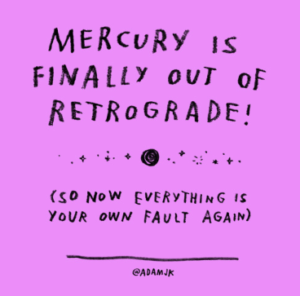 It might interest you to know that ALL planets go into retrograde at some point; Mercury just gets the worst rap because of its ability to throw shade on so many important things in life.
It might interest you to know that ALL planets go into retrograde at some point; Mercury just gets the worst rap because of its ability to throw shade on so many important things in life.
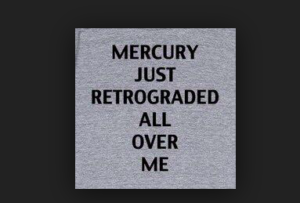
You can do the astrological math to find out which planet rules your sign and how it might affect you when it goes into retrograde. But, to make it more fun, why not use that idea as a pick-up line at your company’s holiday party? “Hi! Which planet rules your astrological sign, when does it go into retrograde, and how does this phenomenon affect you?” I didn’t say it was a great line, but it’s something to think about.
I’d like to end with this: I feel it is my duty to inform you that the gassy planet Uranus has entered Aries and just won’t leave until January 7, 2019. My birthday is January 7th, so Mom, I can’t go out to dinner that night because I need to sit here and wait for the gas to pass.
P.S. I am still working on my book I Married him Anyway; I just wanted to write about Mercury while it’s still retrograding.
